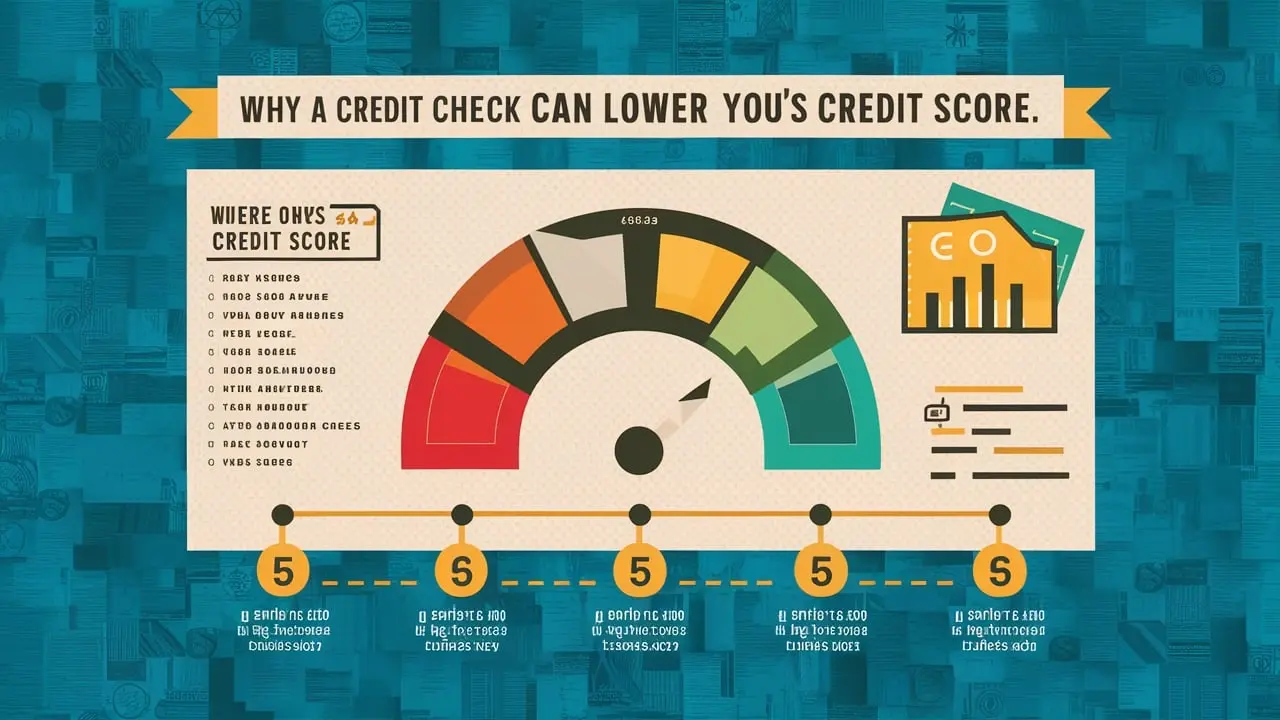-
Posted on: 23 Aug 2024

-
Whenever you apply for a credit of any sort, such as credit card, auto loan, mortgage, or even a cell phone contract, the creditors will most probably request your credit report from one or more than one of the three major CRAs namely Equifax, Experian, or TransUnion. Note that conducting this credit check will trigger an inquiry on your credit report and will hence affect your score negatively. Take a look at the following to understand how checking credit reduces them and what can be done about it.
The Effects of Hard Inquiries
Soft credit check and hard credit check are the two general categories of credit checks. These are when you pull your credit report yourself or when a credit provider runs your credit report without your express consent, such as when you receive pre-qualified credit card offers in the mail. Such kind of queries does not impact your credit scores in any way. Hard inquiries occur when you apply for a new credit. Despite the fact that these types of credit checks are not credit inquiries in the conventional sense, they do appear on your credit reports and, in most cases, slightly reduce your credit score. Hard inquiries can lower scores for a few reasons:Hard inquiries can lower scores for a few reasons:
-
They're Associated With Seeking Credit: A hard inquiry, when it is listed, informs the scoring models that you have recently been looking for new credit. Applying for many new credit accounts within a relatively short span of time is considered to be a riskier move since this may be indicative of credit crunch or over indebtedness.
-
They Lower Your Average Account Age: Another element considered in your scores is the length of your credit history. When you open many accounts at once or close them, your average account age decreases which is bad for your credit score.
- New Accounts Lower Utilization Temporarily: New accounts also begin with a zero credit, which in turn increases your credit utilization ratio, (the extent of credit utilized in relation to your total available credit). When utilization is higher, it indicates credit risk, which lowers score.
Number of Hard Inquiries & Its Effect
In this case, one new hard credit check and account opening will lead to a decrease of 5 points or less on the credit score. This impact is relatively less and minimal and does not normally last for more than six months. However, if you apply for several new credit accounts within a short period, the new credit checks can result in more significant harm and affect your score. Generally, the greater the number of newly opened accounts and hard credit checks in the last 6-12 months, the greater the decrease in the score.
Time Bound Hard Inquiry Effects
In general, it will take about 6 months before the effects of a hard credit check are no longer felt on your credit score. However, other adverse records such as delinquencies, collections accounts or bankruptcies can remain on your credit report for up to 7 years. Hard inquiries are removed from your credit report after two years, although they will have lost most of their potency by then. In other words, just one new credit card application today would reduce your score for roughly 6 months only. After that your score should start increasing once more, assuming all the other variables remain constant.
Measures to Minimize the Effect of a Hard Inquiry
If you need to apply for new credit, there are some things you can do prevent an excessive dip in your scores from the hard inquiry:If you need to apply for new credit, there are some things you can do prevent an excessive dip in your scores from the hard inquiry:
-
Do not apply more than once every 6+ months – When many new applications are grouped together, the result is a greater decline.
-
Some of the products you use every now and then – For some products such as an auto or mortgage loan, credit scoring models understand that you may have to obtain rates from several lenders within a certain period, and this will be considered as a single inquiry if they are close together. This helps to avoid being penalized for the rate shopping multiple times.
-
Inquire about a soft pull preapproval – Some lenders perform a soft inquiry preapproval before the hard check. This means that you can assess prospective terms without experiencing a credit check of the rigid kind. You can then make the decision if the offer fits what you are looking for before applying for a loan that will entail a hard credit check.
-
Ask for an existing credit line extension instead – Sometimes, it might be possible to apply for an extension of an existing credit line instead of applying for a new one, particularly for credit cards. Although, you might get a hard inquiry from your bank here, it is not as damaging as a brand new account.
- Wait for your score to improve before applying – It is advisable not to apply for any other new line of credit right after the initial hit that the credit score takes due to the number of hard inquiries. Space out applications by 6 months to a year and then add more new accounts.
The Takeaway
One has to note that reductions in score due to applying for new credit or “rate shopping” by having one’s credit checked by lenders are just inconvenient but are actually a part of the norm. However, if you handle new credit responsibly especially by meeting your balances in due time hence forward; your credit scores should start recovering within the next six months. The hard inquiries remain as part of typical credit application if seeking reasonable quantities of new credit.
-











